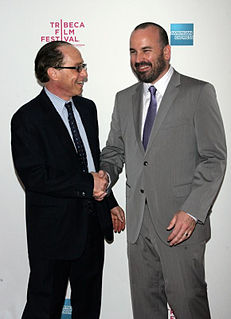A Quote by Tristan Perich
Computers are only capable of a certain kind of randomness because computers are finite devices.
Related Quotes
Until computers and robots make quantum advances, they basically remain adding machines: capable only of doing things in which all the variables are controlled and predictable. Robots are bad at pattern recognition and certainly at common sense. That's why computers can beat humans in chess but can't have even a basic conversation with a six-year-old.
Everything is being run by computers. Everything is reliant on these computers working. We have become very reliant on Internet, on basic things like electricity, obviously, on computers working. And this really is something which creates completely new problems for us. We must have some way of continuing to work even if computers fail.
There is a popular cliché ... which says that you cannot get out of computers any more than you have put in..., that computers can only do exactly what you tell them to, and that therefore computers are never creative. This cliché is true only in a crashingly trivial sense, the same sense in which Shakespeare never wrote anything except what his first schoolteacher taught him to write-words.
At the age of 5, when I was in kindergarten, I often used to pass by the computer labs and see students doing work on computers. I realized that calculation, which would take us a long time to do, can be done in less than a second with the help of computers. So that is how my interest in computers began.








































